DU8002 is one of the models from Samsung's Crystal UHD series, which works well as a television for everyday, occasional use. The Smart TV system based on Tizen runs really well – it’s quick, has a rich selection of applications, and a user-friendly interface, making daily use easier. In home use, the television stands out with great viewing angles, ensuring that even people sitting at the side will have a good picture. It's worth mentioning the small, handy remote that can easily control external devices such as Canal+ decoders. This somewhat compensates for the lack of recording features and adds versatility to the television. As for gaming, the DU8002 will be sufficient for those who spend time in front of the television in a casual manner. Low input lag and the ALLM feature ensure that gameplay is smooth and comfortable. Due to the television’s segment, there are also some compromises – the IPS matrix provides good viewing angles, but this comes at the cost of contrasts, which are rather average. Additionally, low brightness can be a downside in well-lit rooms. In summary, the DU8002 is a solid choice considering its price. However, if we are thinking about a Samsung television and want a better experience watching high-quality content, it’s worth considering an upgrade to the Q60D model from the QLED series. For a little more, you can get better picture quality and a broader set of features, which could be a more satisfying investment.
- Matching (Score)
- Our verdict
- TV appearance
- Where to buy
- Contrast and black detail
- HDR effect quality
- Factory color reproduction
- Color reproduction after calibration
- Smoothness of tonal transitions
- Image scaling and smoothness of tonal transitions
- Blur and motion smoothness
- Console compatibility and gaming features
- Input lag
- Compatibility with PC
- Viewing angles
- Daytime performance
- Panel details
- TV features
- Apps
- Playing files from USB
- Sound
Samsung DU8002 (IPS) vs Samsung DU7192 (VA)
Direct comparison
DU8002 / DU8072


Panel type: LCD IPS
Resolution: 3840x2160
System: Tizen
Model year: 2024
Complete the survey to find out the result

Panel type: LCD VA
Resolution: 3840x2160
System: Tizen
Model year: 2024
Complete the survey to find out the result

Overall rating
5.6
5.4
Movies and series in UHD quality
5.0
5.4
Classic TV, YouTube
4.8
5.3
Sports broadcasts (TV and apps)
5.5
4.8
Gaming on console
6.5
6.7
TV as a computer monitor
6.0
6.0
Watching in bright light
4.2
3.2
Utility functions
6.3
5.2
Apps
9.3
9.3
Sound quality
5.9
5.4
Complete the survey to find out what fits your preferences
Advantages
Expanded and fluid operating system - Tizen
Great viewing angles
Perfect for PC work
Sleek, modern design – ideal for wall mounting
For casual gamers - low input lag and ALLM mode
*120Hz in the 85' variant
Advanced Tizen operating system
High native contrast - VA panel
Low input lag
Accurate colour reproduction after calibration
Disadvantages
Very weak contrast
Average brightness
No recording feature
No Dolby Vision
Low brightness
Poor viewing angles
Our verdict
Samsung DU7192 is a simple and affordable television that is well-suited for everyday use. Thanks to its VA panel, it stands out with good contrast. This is especially important when watching movies in the evening. The blacks are deep, and details in dark scenes are easily visible. It makes a really good impression under dim lighting. After appropriately adjusting the colour settings, the picture becomes even more natural, and tonal transitions look smooth. For daily tasks, the television performs quite well. Tizen, Samsung's operating system, is easy to use and offers access to many popular applications like Netflix and YouTube. Everything runs smoothly, although sometimes some applications have limited functionality. A nice addition is the support for AirPlay, which allows for quick streaming from Apple devices to the big screen. When it comes to working as a monitor, DU7192 also delivers. The low input lag (11 ms) makes gaming smooth and responsive – even in dynamic action games. Fonts are readable when connected to a computer thanks to the well-functioning chroma feature, meaning the television is suitable for simple office tasks. However, this is not a model without flaws. A brightness level of 274 nits is average, so in brightly lit rooms, the screen may appear washed out. When it comes to HDR content, it lacks power, and the absence of Dolby Vision is another drawback if you're looking for full HDR capabilities. The VA panel also has limited viewing angles – if you sit at an angle, colours lose intensity, and contrast deteriorates significantly. Samsung DU7192 is a good choice for those looking for a straightforward television for watching movies, series, or occasional gaming. Excellent contrast and an intuitive operating system are its strengths, which make up for its shortcomings in brightness and viewing angles. It's a device that performs best in evening use or in rooms with controlled lighting.
TV appearance



Contrast and black detail
1.1/10
5.7/10
Local dimming function: No
Local dimming function: No
Contrast:
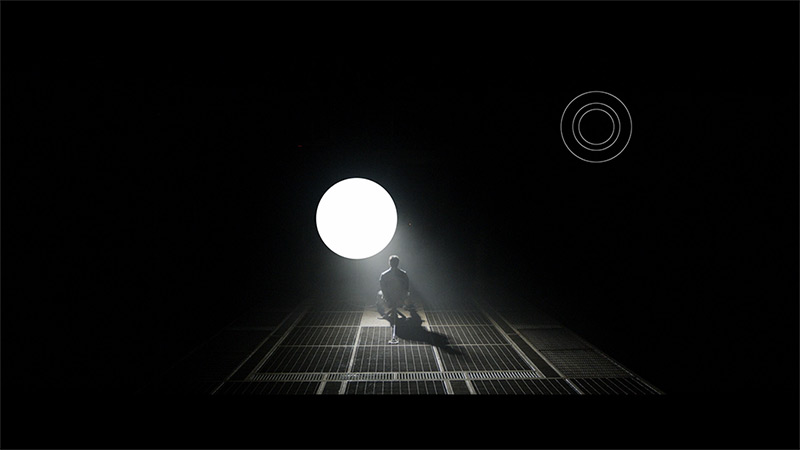
Result
750:1
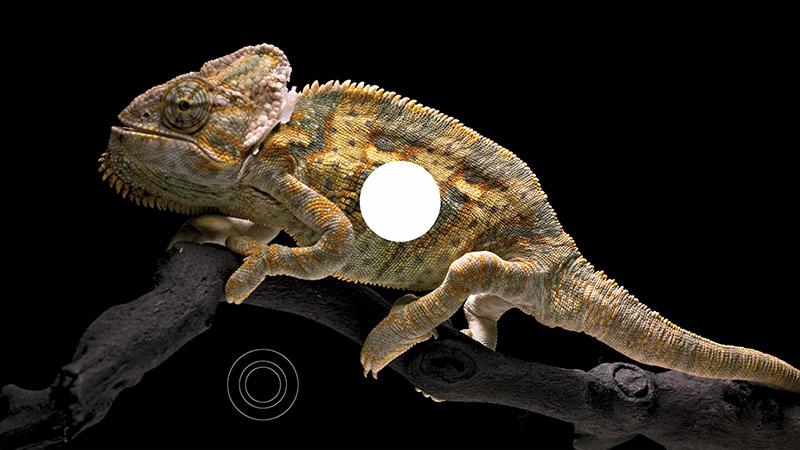
Result
850:1
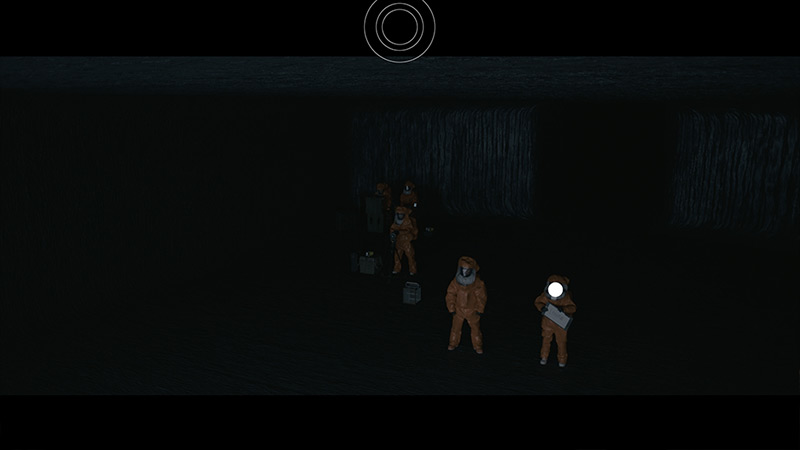
Result
750:1

Result
700:1
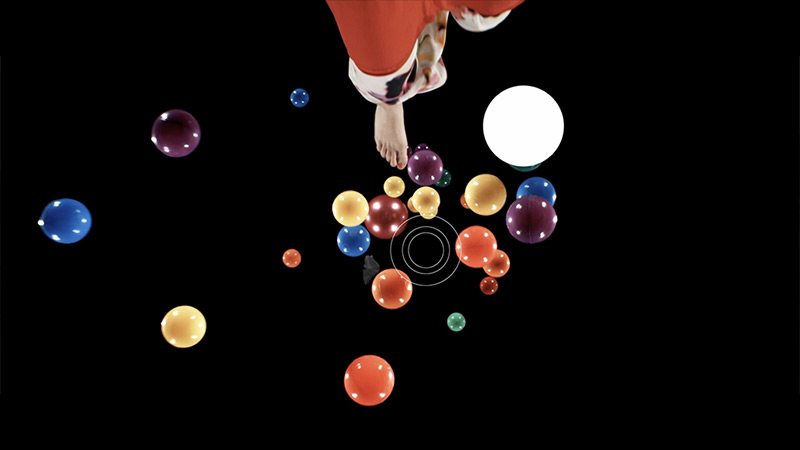
Result
650:1

Result
4,400:1

Result
5,200:1

Result
5,250:1

Result
5,250:1

Result
4,650:1
Halo effect and black detail visibility:


The DU8002 model in the 55-inch version is equipped with an IPS panel, which unfortunately does not favour high contrast. The result? Instead of deep black, we see shades of grey, which makes night scenes and darker parts of the film appear washed out and lacking in detail. The black in this model resembles a silvery sheen more than a deep, cinematic effect, which is a clear downside for fans of intense contrasts and dynamic images. In everyday use, such properties can significantly diminish the viewing experience.
Model Samsung DU7192, in this variant has been equipped with a VA panel, which is definitely a plus in this class of televisions when it comes to blacks. As a result, the contrast is at a good level, with test results reaching around 5000:1. For this segment of televisions, it is quite a satisfactory result. Of course, the lack of local dimming – typical for this price range – means that the black in some scenes loses a bit of depth, taking on shades of navy blue. Such an effect can be observed, for example, in the film Sicario 2 during demanding shots. Nevertheless, the overall quality of the blacks remains satisfactory, especially for users who do not expect complete perfection in the darkest parts of the image.
HDR effect quality
4.2/10
3.7/10
Luminance measurements in HDR:

Result
278 nit

Result
272 nit
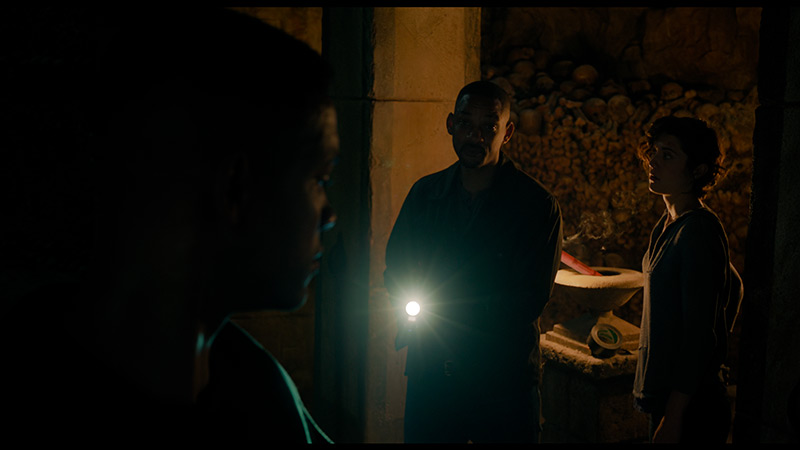
Result
297 nit

Result
277 nit

Result
272 nit

Result
224 nit

Result
240 nit

Result
292 nit

Result
265 nit

Result
271 nit
Scene from the movie “Pan” (about 2800 nits)


Scene from the movie “Billy Lynn” (about 1100 nits)


Static HDR10


Dynamic: HDR10+
Dynamic: HDR10+


HDR luminance chart:
Samsung DU7192 (VA)
HDR luminance
Samsung DU8002 (IPS)
HDR luminance
The HDR effect on the DU8002 television leaves much to be desired. A brightness level of 300 nits is unable to provide a true high dynamic range experience, making the content viewed resemble more standard SDR than impressive HDR. Scenes that should dazzle with brilliance and detail appear muted and lack depth. Nevertheless, the television deserves praise for its high coverage of the DCI-P3 colour palette at 92%. This allows for vibrant and saturated colours, which may please viewers who prefer rich tones, even if the HDR effect does not fully meet expectations.
On the luminance charts, the peak brightness of the television is around 280 nits. Unfortunately, such a value is too low to fully enjoy the effects of HDR, which require significantly higher luminance. In the tested materials, such as The Meg or Gemini Man, the lack of adequate brightness severely limits the magic of HDR, and details in the brighter parts of the image are not sufficiently highlighted. For users primarily consuming SDR content, this quality level might be acceptable but it is definitely not enough when it comes to HDR. Additionally, a DCI-P3 colour gamut coverage of 82% does not favour presenting HDR content in its full glory. The limited colour range makes it difficult for the television to reproduce vibrant and diverse hues, which is crucial for achieving a cinematic experience.
Factory color reproduction
4/10
4/10


Factory Mode
After calibration


Factory Mode
After calibration
DU8002 offers a Filmmaker mode, which is supposed to provide authentic image reproduction in line with the creators' intentions. Unfortunately, despite its promising name, the effects are far from ideal. The white balance in this mode shows significant drops in blue colour, leading to a noticeable yellowing of the image, as seen in our comparison photo. Colour Checker tests confirm these errors. Regarding brightness, the gamma characteristic is too low compared to the reference line of 2.4, resulting in excessive screen brightness. A similar problem occurs with 4K content – the EOTF responsible for brightness in 4K materials shows significant increases above the reference line, leading to overly bright small light elements. As a result, the Filmmaker mode in DU8002 does not meet expectations and instead of providing high quality, presents an image full of tonal and colour inaccuracies.
The best factory mode we relied on during testing turned out to be "Filmmaker." Although it is the mode that most closely aligns with the creators' intent, it still has some imperfections. In the white balance graph for both SDR and HDR, there is a clear dominance of red, resulting in significant yellowing, particularly noticeable in whites and on actors' faces. In HDR mode, there is also a slight dominance of green, which, however, does not have as large an impact on the perception of the image. The gamma, responsible for brightness in SDR materials, performed quite well, but with one serious reservation. In the darkest parts of the image, it was too low, causing excessive brightening of those scenes, depriving the film of drama and contrast. In the case of HDR, the white balance remains at a similar level, but the EOTF curve graph draws attention. At the beginning, the curve noticeably bulges, leading to strong brightening of the darkest scenes. Then, the result sharply drops below the reference line, resulting in an overly dark image and a loss of dynamics in the brighter parts.
In summary, the "Filmmaker" mode, despite its advantages, needs refinement—especially regarding white balance and proper management of brightness in the darkest and brightest parts of the image. In its current form, it may be acceptable for less demanding users, but for viewers expecting precise image reproduction, it may leave much to be desired.
Color reproduction after calibration
7.8/10
5.9/10




Samsung is one of those companies that offers advanced tools to enhance picture quality in its televisions, including a 20-point white balance adjustment. Even in the budget model DU8002, after proper adjustments, surprisingly good results can be achieved. The white balance, especially for HD content, performs really well – tests on the Colour Checker palette confirm accuracy levels of 2–1.5, which indicates the significant capabilities of this television in colour reproduction. In 4K content, although not as perfect as in lower quality material, the overall picture looks much better.
The gamma brightness has also been significantly adjusted, meaning the image is not overly brightened and appears more natural. What about the EOTF curve? At first glance, it seems fine, but upon closer inspection, especially in film tests, it's clear that the television struggles due to its low-contrast panel. And the EOTF drops below the reference line. Nevertheless, the DU8002 is an example of a budget model where investing in calibration is worthwhile. Although construction flaws, such as the type of backlighting, cannot be completely eliminated, colour accuracy is surprisingly good, especially considering its price.
Even with its lower models, Samsung offers advanced image calibration tools, which allow for significant improvement of factory settings. We took on this task, and the results turned out to be more than satisfactory. The white balance, which previously exhibited a strong yellow tint in both SDR and HDR, has been significantly improved. Although minor deviations from the norm can be observed, the overall effect is much cleaner and more natural than before calibration. As a result, whites and skin tones look much better. We were also able to properly model the gamma in SDR content, allowing for maximum contrast that this television can offer. The EOTF curve, responsible for HDR content, has also been improved – the image is no longer brightened or darkened as drastically as it was before calibration. Despite these successes, HDR content still struggles with high deltaE error values. The main reason lies in the limited brightness of the television, which does not allow for a full representation of the dynamics of HDR content. Nonetheless, after calibration, the image is clearly better and much closer to the creators' intent. For users seeking the best possible quality in this class of equipment, calibration is definitely recommended.
Smoothness of tonal transitions
7.3/10
7.7/10












During the gradation tests on the DU8002, some imperfections were noted in most scenes, although they were not intense enough to immediately attract attention. The biggest challenge was bright colours, which did not always maintain smooth transitions. Nevertheless, more complex scenes towards the end of the test surprised positively, where the television performed better than expected, which had a positive impact on the final assessment.
The Samsung DU7192 television deserves praise for its smooth tonal transitions. In our tests, this model performed very well, offering smooth and natural transitions between shades. In everyday use, it's difficult to notice any imperfections that could impact viewing comfort. The only exception is the final scene in our testing procedure, where slight posterization in the reds on the left side of the image was noticeable. Although this is a minor flaw, for most users it will be almost unnoticeable during normal use.
Image scaling and smoothness of tonal transitions
5.4/10
3.2/10
Smooth transition function


Image without overscan on the SD signal


Smoothing tonal transitions on the DU8002 television leaves mixed feelings. Although the menu has an option for smoothing tonal transitions, in practice it yields no results and can even generate unwanted side effects.
Nonetheless, the television handles upscaling, or digital image processing, exceptionally well. The test pattern with the model looked really good – the image isn't overly jagged, and the overall presentation is decent and pleasing to the eye. This is definitely good news for those planning to watch traditional television on this model.
The tonal transition smoothing feature works in two modes – 'off' and 'auto'. Turning it off causes gradation issues, while the 'auto' mode provides smooth transitions, but at the cost of grain effect and details, which are often blurred. Due to these limitations, we do not recommend using this feature, as confirmed by our tests conducted with it turned off.
Scaling lower resolution materials in this model is not impressive. Details are blurry, and the edges of objects may contain artifacts. This limitation means the television performs better with higher resolution content.
Blur and motion smoothness
5/10
4.9/10


Blur (native resolution, maximum refresh rate):






Blur (BFI function enabled):



The DU8002 with a 60 Hz panel is a television that performs better for watching movies than for intense gaming. The motion smoothing feature acts as a fluid enhancer, smoothing out movement and giving scenes a more fluid appearance, which is useful for movie sessions. In the context of gaming, this model is likely only suitable for occasional entertainment.
Even though Samsung DU7192 is the lowest model in the manufacturer's range, it is equipped with a motion smoothing system. While the functionality of this solution is significantly limited compared to more expensive models, its mere presence makes the TV stand out against the competition in this price bracket. The TV supports a maximum refresh rate of 60 Hz, which is sufficient for comfortable viewing of movies and series, but may be inadequate for dynamic content such as sport. In the motion smoothing menu, we find, among other things, a "Vibration Reduction" feature. Unfortunately, its performance leaves much to be desired – regardless of the setting, the image retains the characteristic stutter known from material recorded at 24 frames per second, which means that this feature practically fails to fulfil its purpose.
Console compatibility and gaming features
4.2/10
4.2/10
- ALLM
- VRR
- VRR range
- Dolby Vision Game Mode
- Correct implementation of HGIG
- 1080p@120Hz
- 1440p@120Hz
- 4K@120Hz
- Game bar








DU8002 is a television that is mainly suited for casual gamers. The 60 Hz panel won't provide the highest motion fluidity, so in dynamic games, you might miss that extra smoothness of the image. On the plus side, it has ALLM and HGiG functions, which automatically adjust the picture settings for HDR games, enhancing the gaming experience. Unfortunately, the TV only comes with HDMI 2.0 ports, so we have to forget about more advanced features like VRR or support for 4K at 120 Hz. Choosing this equipment means we will have to make do without a full set of gaming features.
Samsung DU7192 is equipped with HDMI 2.0 ports, which is expected at this price range. This limitation means there is no support for the full capabilities of the latest generation consoles, such as VRR technology. The TV offers only basic features for gamers – automatic switching to low-latency mode (ALLM), and support for basic HDR for games in HGiG standard. HGiG allows for displaying HDR content in games according to manufacturers' guidelines, however, the limited brightness of the TV does not allow full enjoyment of the effects that this standard offers. Unfortunately, there are no conveniences such as GameBar, which is increasingly common even in cheaper models and significantly facilitates quick adjustment of settings for games. The presence of this feature could significantly enhance the user experience, especially for those who frequently switch display modes.
Input lag
10/10
10/10
SDR
HDR
Dolby Vision
The input lag on the DU8002 is definitely one of its strong points. The lag is so low that every reaction on the screen is instantaneous, making gaming smooth and enjoyable. For gamers who enjoy dynamic titles and value quick response times, this television pleasantly surprises. Even though it lacks advanced gaming features or a higher refresh rate, the low input lag is a real advantage that makes a difference.
The results of input lag measurements in DU7192 are at a high level, regardless of the signal or resolution. All gamers will surely appreciate the manufacturer's efforts, which allow a game running at 4K 60 Hz with HDR to have only 11 ms of delay, which is practically imperceptible even in online games.
Compatibility with PC
6/10
6/10


The DU8002 performs excellently as a computer monitor. The 4:4:4 chroma support provides great text readability, so the texts appear sharp and clear, which is a big plus for longer work sessions and content browsing. For office tasks and everyday use, it really stands out. When it comes to gaming, the situation is a bit more complex – the 60 Hz refresh rate somewhat limits fluidity, which might not appeal to more demanding gamers. However, the low input lag is definitely an advantage, making games responsive and enjoyable. In short: super for work, less so for gaming.
By connecting the Samsung DU7192 TV to a computer, we can expect a low input lag of around 11 ms, which is practically imperceptible and ensures smoothness along the mouse-screen-eye line. Additionally, due to the correct implementation of chroma 4:4:4, the readability of fonts is at a high level, making this model a good choice for text work. The TV uses a BGR subpixel layout, which in practice does not negatively affect its performance as a monitor. Although operating systems are not optimised for this subpixel format, which can lead to slightly less clear contours, this is a practically unnoticeable flaw and only perceptible by a few. When it comes to PC gaming, the lack of support for G-Sync or FreeSync and the refresh rate limited to 60 Hz may disappoint gamers who prefer fast-paced titles that require quick reactions. For this reason, as a gaming monitor, the DU7192 performs average.
Viewing angles
6.9/10
3.8/10
DU8002 has really great viewing angles, thanks to the IPS panel. Even when looking at the screen from the side, the picture remains clear and the colours vibrant. This is a big plus, especially if we often watch movies with a larger group or work on a wide desk. You don’t have to worry about someone sitting on the side seeing a washed-out image – here, everything looks good, regardless of the angle.
The viewing angles on the Samsung DU7192 television are average, due to the use of a VA panel. Compared to the previously tested model with an IPS panel, the picture quality when viewed from an angle is noticeably worse. Although the VA panel provides better contrast, the downside is the limited viewing angles, which causes colours to lose intensity and black levels to become noticeably lighter when viewing the screen from the side. Therefore, this model is best suited for setups where viewers can sit directly in front of the television.
Daytime performance
4.2/10
3.2/10




Panel brightness
Average luminance SDR
Samsung DU7192 (VA): 227 cd/m2
Samsung DU8002 (IPS): 291 cd/m2
The performance of the DU8002 television during the day is decent, although it doesn't stand out particularly. The satin display handles reflections mediocrely, so under strong sunlight, they may be noticeable. On the other hand, the stable brightness level of 300 nits works quite well in a slightly lit room, providing a clear image. This is a solid result that will satisfy for everyday use, though in heavily sunlit spaces, it may lack extra power.
The screen of the Samsung DU7192 TV finished in satin provides only average suppression of light reflections. Unfortunately, in practice, it does not handle neutralising glare very well, especially with direct light hitting the screen. Additionally, the maximum brightness of the screen in SDR content, which is only 227 nits, does not help improve visibility in well-lit rooms. Therefore, the TV performs better in dim conditions, as its performance is significantly limited during the day.
Panel details
Subpixel Structure:

Panel uniformity and thermal imaging:
TV features
6.3/10
5.2/10
- HDMI inputs3 x HDMI 2.0, 0 x HDMI 2.13 x HDMI 2.0, 0 x HDMI 2.1
- OutputsToslink (Optical audio), eARC (HDMI), ARC (HDMI)eARC (HDMI), ARC (HDMI)
- Network InterfacesWi-Fi 2.4GHz, Wi-Fi 5GHz, Ethernet (LAN) 100MbpsWi-Fi 2.4GHz, Wi-Fi 5GHz, Ethernet (LAN) 100Mbps
- TV receptionDVB-T, DVB-T2, DVB-CDVB-T, DVB-T2, DVB-S, DVB-S2, DVB-C
Classic features:
- Recording to USB (terrestrial TV)
- Recording programming
- Picture in Picture (PiP)
- RF remote control (no need to aim at the screen)
- Backlit remote control
- Teletext
- Audio only mode
- Bluetooth headphones support
- Simultaneous Bluetooth headphones & TV audio
Smart features:
- AirPlay
- Screen mirroring (Windows Miracast)
- Voice search
- Voice search in native language
- Ability to connect a keyboard and mouse




The Tizen system in the DU8002 television is a big plus. It runs smoothly, offering a lot of apps to choose from, although there are some limitations, such as the absence of Canal+. The voice control in Polish is a plus, simplifying daily navigation. Tizen also provides a solid foundation for building a smart home thanks to integration with SmartThings – a great option for those who want to manage devices at home from one place.
Among the useful features, we find AirPlay and Miracast, which make it easier to stream content from phones or laptops to the TV screen. The ability to connect devices via Bluetooth is another advantage. As for the downsides – the lack of a PiP (picture-in-picture) function and the option to record programs can be disappointing. Fortunately, the Samsung remote, although small and sleek, has its advantages. It can control external devices, such as set-top boxes, which often offer recording features, which can mitigate this drawback.
When it comes to design, the DU8002 is a true gem. It is one of the sleekest devices available on the market. With the right mount, it can be mounted on the wall, resembling a hanging frame with a picture – the effect is impressive and fits perfectly into modern interiors. Additionally, the adjustable width of the stand allows it to be matched to various pieces of furniture, although unfortunately, this option is not available in all sizes.
Samsung DU7192 uses the Tizen system, which has been the foundation of the software in this manufacturer's televisions for years. One of the biggest advantages of this system is its smooth operation – in our tests, we did not notice any stutters or other responsiveness issues. The interface is clear, and navigating the menu is intuitive, especially with the help of the included Bluetooth remote, which allows for quick and convenient control.
The app store offers a wide range of options; however, the limitations arising from the closed nature of the system may disappoint more advanced users. For example, there is no possibility to install applications from outside the official store, which may be felt when there's a lack of support for certain services, such as Tidal.
However, the Tizen system stands out with great integration with external devices, such as set-top boxes or soundbars. The process of connecting them is quick and hassle-free. An additional advantage is the support for AirPlay, which will particularly please users of Apple devices, allowing for easy streaming of content to the television screen.
Apps
9.3/10
9.3/10














































Playing files from USB
9.1/10
9.1/10
Supported photo formats:
Maximum photo resolution:


Playing files from USB on the DU8002 television is at a very good level, similar to most Samsung models. The television handles most popular audio, video, and photo formats, making multimedia playback convenient and hassle-free. Support for Polish characters in subtitles and the ability to change the font colour are significant advantages that users who like to customise their experience will appreciate. Among minor drawbacks, one could mention the lack of support for the HEIC photo format, popular among Apple users. Nonetheless, playback of files from USB is at a very satisfactory level and should meet the expectations of most users.
The built-in media player in the Samsung DU7192 TV is certainly an advantage of this model. In our tests, the device handled nearly all video and audio files without any issues, except for Dolby Vision formats and less common codecs – which is understandable in this price range. It's also worth noting the support for Polish characters in subtitles and the ability to change font colours, which enhances the viewing comfort for films with external subtitles. Unfortunately, when it comes to photos, the player performs worse, only supporting the popular JPEG format.
Sound
5.9/10
5.4/10
- Maximum volume-83dB
- Dolby Digital Plus 7.1
- Dolby True HD 7.1
- Dolby Atmos in Dolby Digital Plus (JOC)
- Dolby Atmos in Dolby True HD
- DTS:X in DTS-HD MA
- DTS-HD Master Audio
The sound in the DU8002 is clear and crisp, but unfortunately it lacks bass – this is the effect of a slim profile that sacrifices sound depth for an elegant appearance. When it comes to playing audio files, we won’t find support for DTS here, which may be a downside for more demanding users. Fortunately, the television supports the Dolby Digital Plus codec, allowing for Dolby Atmos sound to be transmitted to other devices, such as soundbars. This means we can enjoy spatial sound that adds a new dimension to movies and music.
The built-in converters offer basic quality, which at higher volume levels can lead to distortion. For this reason, we recommend using half the volume scale to avoid distortion.
On the plus side, there is support for a wide range of audio codecs, including DTS-HD Master Audio and Dolby Digital Plus. These standards allow for the transmission of high-quality surround sound to external devices, such as soundbars or home theatre systems. This means that despite the limitations of the built-in audio system, users can enjoy significantly better audio experiences using additional equipment.
